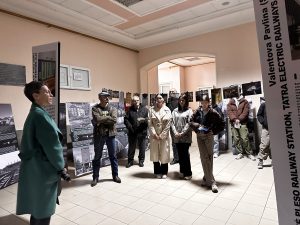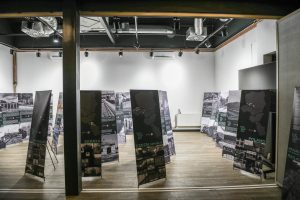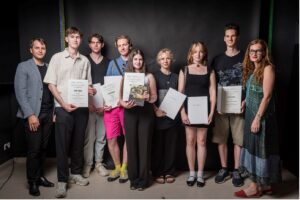Online seminar Railway heritage and reuses, the second knowledge-sharing event of the Railway Heritage for Sustainable Tourism Development – Rail4V4+V project held on March 9, 2022. Our Czech partner, The Research Centre for Industrial Heritage FA CTU Prague, was the event organiser.
Anica Draganić, head of the Rail4V4+V project, welcomed participants, speakers and guests.
Irena Lehkoživová, an architectural historian and a regular collaborator of the Research Centre for Industrial Heritage FA CTU in Prague, was a moderator of the seminar.
Professor Benjamin Fragner, the founder of the Research Centre for Industrial Heritage, looked at the history and importance of the railway from the other side – from the demolished railway station in Prague-Těšnov to the movement to save the industrial heritage. Lukáš Beran, an architectural historian at the Faculty of Architecture of the Czech Technical University in Prague, analysed the first use of standard building designs in the Austro-Hungarian monarchy. Jan Červinka, an art historian, focused on environmental sustainability in preserving industrial heritage in Nymburk. Robert Kořínek, a researcher at the T. G. Masaryk Water Research Institute, presented railway water stations and elevated water tanks from historical and contemporary perspectives. Petr Prokeš, the director of the Tanvald Railway Company, introduced the history of the rack railway line Tanvald – Kořenov – Harrachov. Radek Kubala presented the Zubrnice Museum Railway, co-founded by himself. Jan Zikmund, an architectural historian working at the Research Centre for Industrial Heritage (VCPD), gave a lecture on The Industrial Topography web interface possibilities concerning railway heritage sites.
A discussion on different topics followed presentations:
approaches in railway heritage renewal, conservation vs adaptive reuse, community participation, financing and managing railway museums, museums content and activities, reuse examples in the other participating countries.
This seminar provided an excellent opportunity to share experiences on both practical and theoretical issues. Our project team will implement the seminar conclusions in the Guidelines for the railway tourism development.






